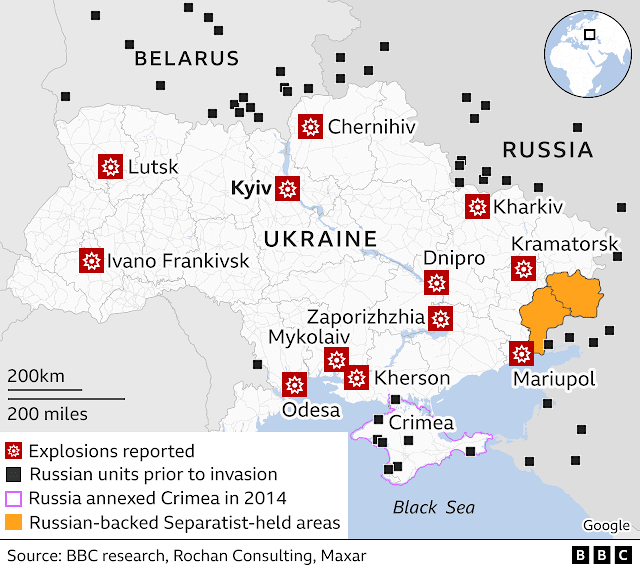Topic: India, US, Japan and Australia Deepen Co-operation
The 'Quad' a loose alliance of the United States, Japan, Australia and India have launched a joint maritime project to combat illegal fishing and have simultaneously pledged to invest more than $50bn in developing infrastructure as a means by which to counter growing Chinese influence in the region. This vast investment was announced early on May 24th, 2022, after the leaders of the four states met in the Japanese capital.
In a joint statement, the leaders of the four nations stated that the measures announced are aimed at ensuring that the grouping is seen as a "force for good" which is "committed to bringing tangible benefits to the region." Whilst the statement did not go as far as to mention China by name, the leaders did note that the alliance "strongly oppose any coercive, provocative or unilateral actions that seek to change the status quo" in the Indo Pacific. This includes the "militarisation of disputed features, the dangerous use of coast guard vessels and maritime militia, and efforts to disrupt other countries' offshore resource exploitation activities". All of which, can be seen as a blatant shot aimed at Chinese actions in the South China Sea.
 |
| The meeting of the Australian, American, Indian and Japanese leaders. (Right to left) Image Credit: GETTY IMAGES |
The meeting of the Quad comes at the end of President Biden's five-day tour across Asia, which has included prior meetings with Japanese and South Korean leaders. In these meetings, Biden has agreed to work with both nations to counter Chinese expansionism and the belligerent North Korean stance on nuclear weapon programmes. Noticeably, the US leader also stated that the US would intervene militarily in order to defend Taiwan in the event of a Chinese attack on the mainland. These definitive comments came as a surprise to onlookers as the statement contradicted the long-held US stance of 'strategic ambiguity' regarding its position on defending the island. Later, the US stated that there had been no such change, but that was not enough to stop a furious Chinese reaction. China, which views Taiwan as part of its core territory, stated that the US president was "playing with fire". China has also previously condemned the Quad grouping as an "Asian NATO", aimed at slowing its rise to global superpower status. In reality, that is exactly what the Quad is. Along with AUKUS, the US attempts to hope to 'cage-in' Beijing behind a wall of allies, including South Korea to the north, Japan and Taiwan to the east, Australia to the South and India to the West.
What is the Quad?
The Quad is a loose alliance between the four nations of India, Japan, Australia and the United States set up in the aftermath of the 2004 Indian Ocean tsunami in order to coordinate humanitarian assistance. Despite its relevance fading in the late 2000s, it has taken on new importance following Obama's 'pivot to Asia' and the subsequent attempt to limit Chinese power in the Asia-Pacific. The US now calls the Quad a 'leading regional partnership' that attempts to progress the vision of a 'free and open Indo-Pacific'. Subsequently, the group has conducted military exercises and co-operated on the COVID-19 pandemic, technology, cybersecurity, climate change and infrastructure projects.
 |
| A map of the Quad and China. Image Source: https://www.defensepriorities.org/explainers/what-the-quad-is-is-not-and-should-not-be |
What else did the Quad discuss?
Aside from the announcement of major investments, the meeting also discussed how best to counter Chinese economic and military influence, as well as the fallout from Vladimir Putin's invasion of Ukraine. This issue has proved divisive among the grouping, with the United States and to a lesser extent Australia and Japan, taking on a dramatically anti-Russian stance, providing serious hardware to the beleaguered Ukrainian military. India on the other hand, despite being the worlds largest democracy by population, has failed to condemn Putin or the invasion. Analysts believe this due to the importance of Russia to India in countering Chinese influence, as well as the Indian reliance on Russian weapon imports for its military.
Biden for his part, was not pulling any punches, stating "We are navigating a dark hour in our shared history... the Russian brutal and unprovoked war against Ukraine has triggered a humanitarian catastrophe... This is more than just a European issue. It’s a global issue.” Accordingly, the issue of the invasion was raised in a bilateral meeting with Modi, the Indian PM, afterwards. Herein the two leaders were said to commit to providing humanitarian aid and assistance, as well as discussing the disruptions the conflict has caused in food security and energy prices.


Comments
Post a Comment